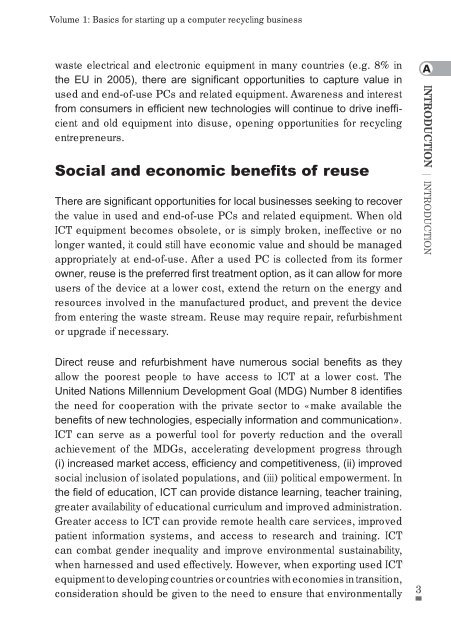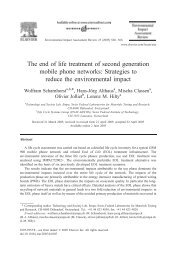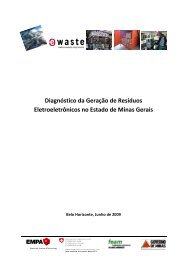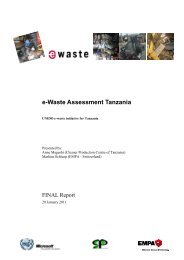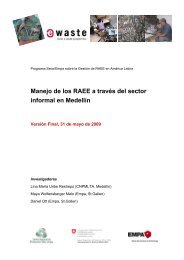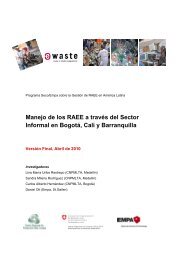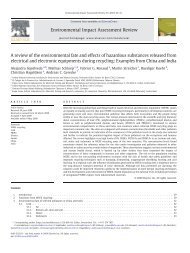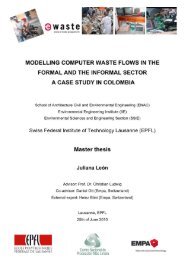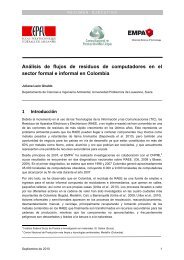The Entrepreneur's Guide to Computer Recycling - e-Waste. This ...
The Entrepreneur's Guide to Computer Recycling - e-Waste. This ...
The Entrepreneur's Guide to Computer Recycling - e-Waste. This ...
You also want an ePaper? Increase the reach of your titles
YUMPU automatically turns print PDFs into web optimized ePapers that Google loves.
Volume 1: Basics for starting up a computer recycling businesswaste electrical and electronic equipment in many countries (e.g. 8% inthe EU in 2005), there are significant opportunities <strong>to</strong> capture value inused and end-of-use PCs and related equipment. Awareness and interestfrom consumers in efficient new technologies will continue <strong>to</strong> drive inefficientand old equipment in<strong>to</strong> disuse, opening opportunities for recyclingentrepreneurs.Social and economic benefits of reuse<strong>The</strong>re are significant opportunities for local businesses seeking <strong>to</strong> recoverthe value in used and end-of-use PCs and related equipment. When oldICT equipment becomes obsolete, or is simply broken, ineffective or nolonger wanted, it could still have economic value and should be managedappropriately at end-of-use. After a used PC is collected from its formerowner, reuse is the preferred first treatment option, as it can allow for moreusers of the device at a lower cost, extend the return on the energy andresources involved in the manufactured product, and prevent the devicefrom entering the waste stream. Reuse may require repair, refurbishmen<strong>to</strong>r upgrade if necessary.AINTRODUCTION | INTRODUCTIONDirect reuse and refurbishment have numerous social benefits as theyallow the poorest people <strong>to</strong> have access <strong>to</strong> ICT at a lower cost. <strong>The</strong>United Nations Millennium Development Goal (MDG) Number 8 identifiesthe need for cooperation with the private sec<strong>to</strong>r <strong>to</strong> «make available thebenefits of new technologies, especially information and communication».ICT can serve as a powerful <strong>to</strong>ol for poverty reduction and the overallachievement of the MDGs, accelerating development progress through(i) increased market access, efficiency and competitiveness, (ii) improvedsocial inclusion of isolated populations, and (iii) political empowerment. Inthe field of education, ICT can provide distance learning, teacher training,greater availability of educational curriculum and improved administration.Greater access <strong>to</strong> ICT can provide remote health care services, improvedpatient information systems, and access <strong>to</strong> research and training. ICTcan combat gender inequality and improve environmental sustainability,when harnessed and used effectively. However, when exporting used ICTequipment <strong>to</strong> developing countries or countries with economies in transition,consideration should be given <strong>to</strong> the need <strong>to</strong> ensure that environmentally3


